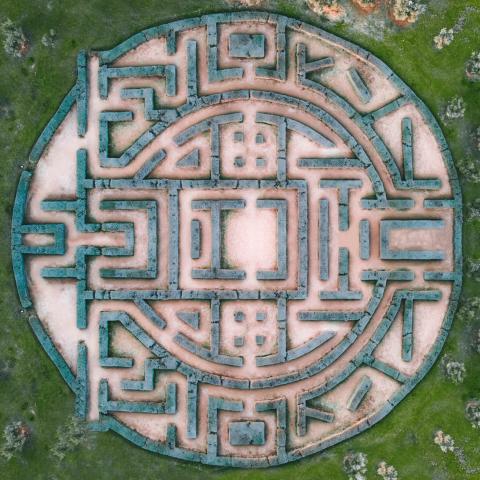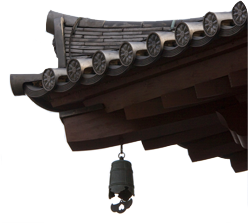
The kind of leadership we usually encounter in business, in government, and even in our spiritual communities assumes a top-down perspective. At the top are the leaders, who are engaged, ambitious, and effective. At the bottom are life’s voyeurs, uninvolved, hesitant, and resigned. In between is everyone else. Neither visionaries nor bystanders, most of us go about our lives and are expected to fit in and do our best to contribute. To a great degree we take this top-down perspective for granted.
The Buddhist approach, however, does not encourage us to wait for someone else to take the lead when it comes to contributing to our world. For Buddhists, taking the lead in creating a decent world is at the heart of the Mahayana or bodhisattva ideal. This approach to leadership reveals that the top-down outlook is seriously lacking, for it overlooks a most fundamental human reality: that all human beings instinctively desire to inspire others, and this can be done by anyone, anywhere, anytime.
The instinct to inspire the best in others is completely natural and is at the heart of being a leader. Whether we are a child charming a parent, a neighbor hosting a spring barbecue, or a world leader planning for the future, all of us offer a part of ourselves in order to inspire others. Leadership begins with this simple human gesture to inspire.
Instead of the top-down model, the best leadership first occurs from the inside out—offering to others a part of ourselves that inspires them. From this perspective, top-down leadership alone is inadequate, because it overlooks the fact that each and every one of us, by our sheer humanity, is capable of leading from the inside out.
Typically, when we think of leading, we think of guiding and directing others, pointing the way, setting direction. And surely these are things that leaders do. Yet there is a fundamental human gesture that must take place first, before any leader can guide, direct, or point the way. Leaders must first open. They must step beyond the boundaries of what is familiar and routine and directly touch the people and environment they want to inspire. Leading others requires that we first open ourselves to the world around us.
Many business leaders would find such an approach peculiar. It’s hard to imagine overhearing leaders in the boardroom saying to one another, “Hey, why don’t we all try to open up to one another?” Such a view of leadership would appear soft or weak. Flowers and windows open, not leaders. But from the Buddhist point of view, opening is fundamental to leadership because it is how we become utterly realistic about our circumstances. It is how we abandon our version of reality for the experience of reality itself.
I recall waiting for an appointment in an executive reception area of a Fortune 100 company, and on the wall was an impressive photograph of the Atlantic Ocean. A lighthouse beamed its guiding light across the waves, and beneath the photo it read, “Vision is not seeing things as they are, but as they will be.” I asked the executive I was visiting what she thought of the saying, and she too had had her doubts. “I wonder how that picture even got up there?” she mused. I couldn’t help running the first part of the saying over and over in my mind: “Vision is not seeing things as they are.” My Buddhist training had taught me the opposite: that not seeing things as they are is blindness, and focusing on the future without first facing reality will lead only to failure.
When we are willing to open to our world, we express an innate intelligence that is at once sharp but flexible, realistic but not jaundiced, clear-seeing but unassuming. At such moments of openness, we view our workplace without any lenses, undistracted by our priorities, our preferences, our vision of the future. Instead, we grasp directly the full measure of our present circumstances: we recognize the opportunities, appreciate our colleagues’ views, acknowledge the difficulties, and delight in the natural grace and flow of the moment.
Such open intelligence, however, demands that we drop any pretense or strategy. Who we are and how we want to be perceived; what we want to accomplish and how we want to get there—these become unimportant. In short, we become irrelevant.
Dropping our point of view—indeed, our identity altogether—we discover that to lead from a position of openness is to be undefended, engaged, and raw. At times such vulnerability can be freeing, because we stop wrestling with our personal anxiety, resentment, and fear and simply expose ourselves fully to our world. Yet such vulnerability can be terrifying, since we can’t rely on familiar postures, emotions, or clichés for comfort and reassurance.
The suggestion that we lead by being vulnerable may seem absurd. Leaders, it is typically believed, should be equipped with all kinds of armor. They should be invincible and potent, able to bear the slings and arrows of workplace competition and hostility.
Usually we think of being vulnerable at work as being weak, inadequate, shamefully flawed. From a Buddhist perspective, however, open vulnerability is not a weakness but a wisdom that is poised, skillful, and astute. The Olympic figure skater who flawlessly executes a double open axel understands the wisdom of vulnerability. The classroom teacher who pauses to soak in a child’s anxious resistance before reacting understands this wisdom. The manager who genuinely listens to the disgruntled employee, the attorney who drops an adversarial mindset, the martial artist at her ease—each understands the open wisdom of vulnerability.
In the Buddhist tradition of the bodhisattva, rather than leading with will, power, and ambition, we lead and inspire with openness, intelligence, and vulnerability. Such leadership is quite natural but it must be cultivated and not taken for granted. We can develop our personal sense of openness in two ways: through mindfulness meditation and by exchanging ourselves for others.
Mindfulness meditation is how we exercise our “opening muscle.” It’s like going to the “bodhisattva gym” for a workout. Typically, we resist opening because we want to hold on to our version of reality, our storyline. We want to bring our style, variety, and stage setting to our experience; we want our world to behave itself and we have all kinds of suggestions for how it can shape up. In mindfulness meditation, however, we learn to let go of such ploys and open to our immediate experience, directly, authentically, and often, monotonously. In mindfulness meditation we just sit and appreciate our immediate circumstances quite naturally.
By letting go and opening in mindfulness over and over again, we gradually develop the muscles of a bodhisattva leader so that we flex them in everyday life by exchanging ourselves for others. That doesn’t mean we dress up as our boss and pretend to run the company, or change our voice on the phone so others think we are someone else. Such shenanigans can be fun, but in this case, exchanging ourselves for others is how we live an honest and realistic life. For when we open to our world, we discover that everything we need and aspire to has to do with others. Rather than arguing with ourselves about how to build a “me-centered” replica of life, we can engage in a dialogue with our circumstances by exchanging ourselves for others.
It is quite natural for us to do such a thing, and each day millions of us do. Small gestures such as holding a door open for another or offering one’s place in line are common courtesies where we exchange ourselves for others. But as we all know, exchanging ourselves for others goes much, much further. Each day we give our lives for one another, care for one another, hold one another while we die. We raise one another as children, change each other’s diapers, and celebrate others’ joys.
For the open leader, cultivating these moments of exchanging ourselves for others is how we listen to our world—how we appreciate and learn before we act. Whether we are at home or at work, strolling in the park or attending a stockholders’ meeting, opening to our circumstances means others come first. Such a perspective is the wisdom of an open leader.
This artical originially appeared in the November 2006 issue of Shambala Sun.

